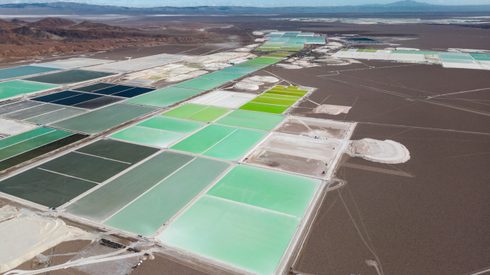Fastmarkets’ daily price assessment for lithium carbonate, 99.5% Li2CO3 min, battery grade, spot price, cif China, Japan & Korea, was $79-82 per kg on Friday, widening upward by $1 per kg from $79-81 per kg a day earlier.
The corresponding price assessment for lithium carbonate, 99.5% Li2CO3 min, battery grade, spot price range, exw domestic China, was 580,000-600,000 yuan ($79,378-82,112) per tonne on November 3, up by 15,000-20,000 yuan per tonne from 560,000-585,000 yuan per tonne a week earlier.
The latest prices have risen by 55,000-60,000 yuan per tonne (10.80%) from 525,000-540,000 yuan per tonne on October 6, due to persistently tight supply amid continuing strong demand.
“Battery-grade lithium carbonate prices are rising fast in China, and China is the biggest spot seller to the Japan and [South] Korea markets,” a Chinese lithium producer source said. “There is no reason why any Chinese seller would offer spot materials to Japanese or Korean consumers at prices lower than the domestic Chinese level.”
A Chinese lithium trader echoed this view, adding: “Even if the consumers in Japan and Korea find those prices [for battery-grade lithium carbonate] from Chinese sellers too high, it is not likely that Chinese sellers would lower their prices, considering the strong Chinese market.”
Market participants also noted that the tight supply further contributed to increases in battery-grade lithium carbonate prices in the seaborne East Asian market.
Apart from the Chinese lithium producers, whose spot supply has remained tight after the power rationing during August in China’s Sichuan province, multiple Japanese traders also told Fastmarkets that they were only delivering orders under long-term contracts while their spot trading was muted because no additional material was available.
“If a consumer really needs to buy spot materials, it doesn’t seem that they have any choice but to accept current lithium carbonate prices,” a South Korean battery producer source said.
“In such a tight market,” the Chinese lithium producer source added, “I think the prices will remain on the uptrend in the short term. A consumer found my offer price a little high and rejected it last week. But they regret that now, because the prices have gone up.”
Keep up to date with the latest news and insights in the lithium market by visiting our dedicated lithium page.





